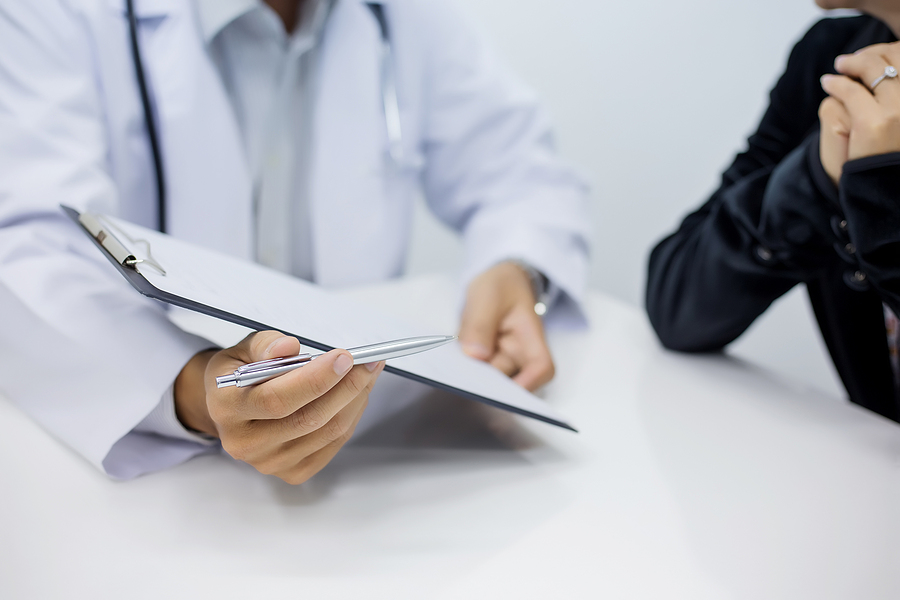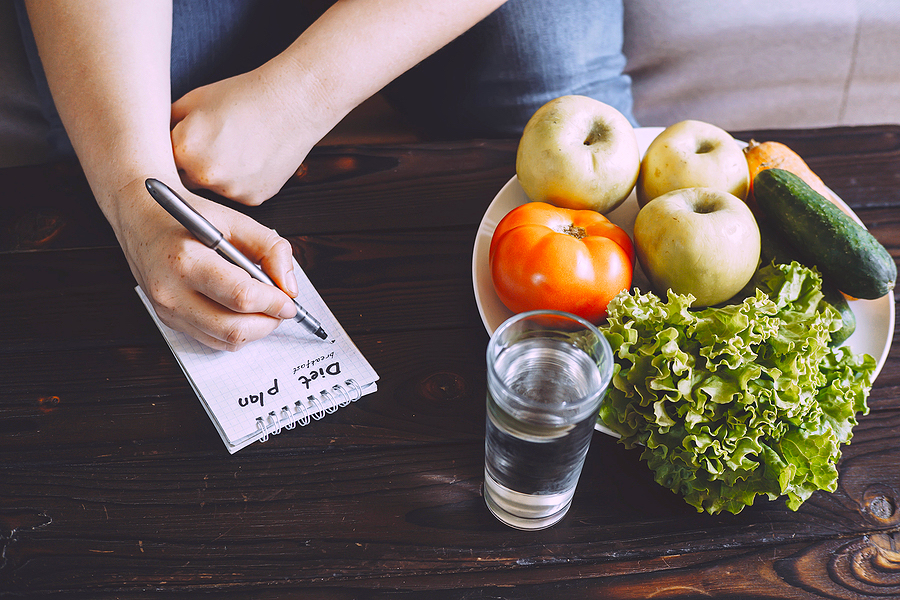Most women are familiar with the role that Vitamin D plays in bone health. There’s a huge body of research that supports the impact that this important nutrient has, and the food industry has heavily invested in marketing the benefits of products fortified with Vitamin D. But do you know how many other health issues can be connected to a Vitamin D deficiency? Have you had your levels checked recently? If not, you should! Let’s take a look at why.
What is Vitamin D?
Vitamin D is a fat soluble vitamin that is required for the regulation of both calcium and phosphorus, minerals found in your body. It’s also a precursor hormone, the essential foundation for the hormone calcitriol. While the relationship between vitamin D and bone health is well known, it also has a connection to many other health concerns.
Vitamin D deficiency is a big problem due to the part it plays in important body functions. Vitamin D supports mineral absorption and metabolism (especially calcium and phosphorus), regulates normal cell differentiation and proliferation; aids in blood sugar regulation, and regulates over 200 genes as it binds to ‘Vitamin D receptors all through your body.
Research is turning up more and more evidence that this vitamin is essential. In my practice, I’ve seen so many women with a deficiency, and they simply had no idea it could impact so many aspects of health. Let’s take a look at some ways that Vitamin D could be affecting your health.
The Connections Between Vitamin D and Health
Scientists have been studying Vitamin D for decades, and deficiency has long been associated with major health concerns, including obesity, diabetes, respiratory tract infections, bone health, immune dysfunction, cancer, heart disease, depression, autoimmune disease, even stress and fatigue, just to name a few. Are you surprised to hear that so many problems could be a result of not having enough of this essential vitamin? Many women are!
Current research continues to support the notion that Vitamin D deficiency impacts many areas of health. One study found that low Vitamin D levels were associated with a higher ROMA score, which can indicate risk in obese women for developing ovarian cancer. And a recent randomized controlled trial found that supplementing with Vitamin D and calcium significantly reduced risk of all cancers in postmenopausal women. This is big news!
The findings of another study, presented at the European Society of Endocrinology annual meeting in May of 2018, showed that higher levels of belly fat were associated with decreased levels of Vitamin D in obese individuals.
And it’s not just major disease that can be impacted by Vitamin D. Sufficient levels of Vitamin D can also help keep everyday illnesses, like colds and flu, at bay. Authors of a meta-analysis of research concluded that Vitamin D supplementation is effective in reducing acute respiratory infection, particularly in subjects with significant Vitamin D deficiency.
With science supporting the effects of Vitamin D on health, I think it’s important for all women to be aware of risk factors, symptoms of deficiency, and what they can do about it!
Who is Most at Risk for Vitamin D Deficiency?
Although it’s important for everyone to get enough Vitamin D, there are some groups of people who should pay particular attention to their levels, since they are at higher risk of deficiency.
People who avoid direct sun exposure, or live in northern latitudes, could have lower levels since their bodies won’t be able to manufacture any vitamin D. Anyone on a strict vegan diet is also at risk, since most natural sources of the vitamin come from animal products such as fish and fish oil, egg yolks, beef liver and fortified milk.
Other risk factors include kidney issues which impede the bodies ability to convert vitamin D to its active form; darker skin, since the pigment melanin interferes with vitamin D production; digestive issues that prevent vitamin D from being properly absorbed; and obesity, since fat cells can extract vitamin D from your blood, preventing its release into your circulatory system. Older adults are often at risk as well.
How Will I Know if I Have a Vitamin D Deficiency?
Any time you don’t feel well, you should look for the root cause of the problem. While a general sense of being unwell can accompany many conditions, it’s one of the signs that you might be dealing with vitamin D deficiency. Other signs include severe tiredness; chronic aches and pains; severe pain or weakness in bone or muscles that makes climbing stairs, getting up from a low seated position, or an unusual gait; and stress fractures, particularly when they occur in your legs, hips or pelvis.
Vitamin D deficiency isn’t hard to diagnose – a simple blood test is often all it takes. But many conventional practitioners still aren’t routinely ordering this, so make sure you ask!
You don’t need to wait to hear that you don’t have enough of this important vitamin to do something about it — there are many simple ways to address your body’s need for Vitamin D before you have a problem!
Tips to Avoid Vitamin D Deficiency
So many Americans are dealing with low Vitamin D levels that it seems wise to know how to get enough, even if you don’t have an issue yet. Even if you fall into one of the high risk categories, there are plenty of things you can do to be sure your vitamin D levels are high enough. Here are a few tips to get you started:
Get Tested
Without the right information, there’s no way for you to know the right solution. And the balance can shift quickly, which is why I recommend testing Vitamin D levels twice a year, in mid-winter and at the end of the summer. Over 85% of my patients have been found, through testing, to have low Vitamin D levels. If you remember nothing else, remember that number – and ask your health care practitioner to test your levels!
Don’t Avoid Direct Sunlight
Melanoma is a valid concern, but a few minutes in direct sunlight at the right time of day will do more good than harm! Just 5 to 20 minutes of natural sunlight can produce the Vitamin D your body needs. I’m not suggesting you hit the beach without sunscreen, but it’s okay to take a short walk or do a little gardening while soaking up the rays. It’s best to avoid the hours between 11 am and 2 pm, when the sun is strongest. Try early morning or late afternoon instead.
Don’t Underestimate How Much You Need
The recommended daily intake (DRI) of Vitamin D is generally far lower than what people actually need. If your levels are low, discuss the appropriate dosage with your health care practitioner to get you back where you need to be. Often, this means a much higher dose, temporarily, than the DRI!
Eat a Balanced Diet, Rich in Whole Foods
Since there are so few natural dietary sources of Vitamin D, you may not be able to get a sufficient amount from food alone, but a well-balanced diet is always important. Fatty fish – salmon, mackerel and sardines – is the best natural food source of vitamin D. You can get some from egg yolks, organ meats, and fortified organic milk and dairy products, but it’s unlikely that those foods will be enough on their own.
Find a Good Vitamin D Supplement
Daily sunlight and a healthy diet are great ways to boost your Vitamin D, but it just might not be enough – especially if your levels are far too low to begin with. Researchers suggest that supplementing with 2000 IU of D3 daily is a great way to protect your health long term. Make sure you seek out a high quality option so you’re getting exactly what you pay for – and nothing else Choose a formula that is specially designed to help strengthen bones, arteries and boost your immune system.
Vitamin D Might Be the Key to YOUR Good Health!
I hope I’ve given you plenty of encouragement and good reasons to get your Vitamin D levels checked if you haven’t recently. Feeling your best is important any time of year, but during this busy season, it’s critical! With so many potential factors impacting your health, it just makes sense to explore the possibility that boosting this essential nutrient could make you feel better quickly!
Resources:
https://www.webmd.com/diet/guide/vitamin-d-deficiency
https://www.webmd.com/vitamins/ai/ingredientmono-929/vitamin-d
https://www.healthline.com/health/food-nutrition/benefits-vitamin-d#vitamin-d-deficiency








